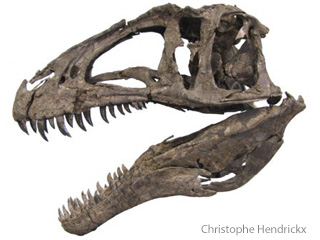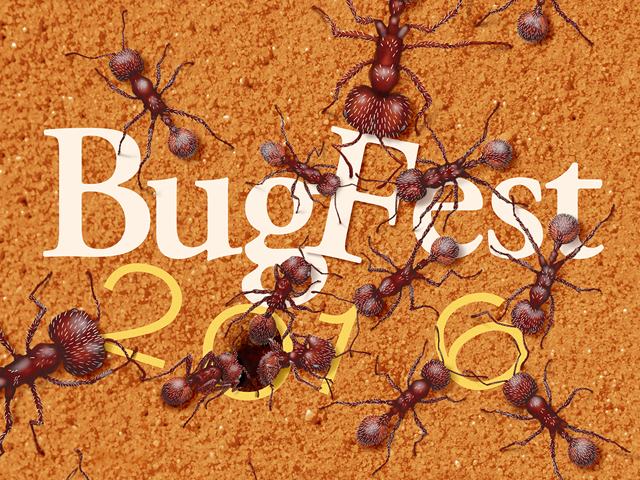
Outrageous Heads Led to Outrageously Large Dinosaurs
September 28, 2016
Tyrannosaurus rex and other large meat-eating theropods were the biggest baddies on the prehistoric block, and ornaments on their heads could help us figure out why. New research from North Carolina State University shows that theropod dinosaur species with bony crests, horns and knobs evolved to giant body sizes 20 times faster than those species… Read More >

Museum’s accessibility and inclusion coordinator wins Governor’s Award for Excellence
RALEIGH — Liani Yirka, the North Carolina Museum of Natural Sciences’ first Accessibility and Inclusion Coordinator, today received a 2016 Governor’s Award for Excellence for her tireless efforts to make the museum more accessible and welcoming to people with disabilities. The Governor’s Award for Excellence is the highest honor a State employee may receive and is awarded… Read More >

It’s a scream! Museum’s Final Friday features “Anaconda” plus live boas, September 30
RALEIGH — Giant snakes have crawled their way into every realm of popular culture. Nicki Minaj sings about them, Neville Longbottom fought one, and we all know how Samuel L. Jackson feels about them when they get on his airplane. But what do we know about real giant snakes? For this month’s Final Friday, the… Read More >

Media Advisory: BugFest Critter Cook-off Friday, Sept. 16, 11am
September 14, 2016
Local chefs take the battle from Fayetteville St. to Museum for BugFest Critter Cook-off 2016 (RALEIGH)—Let the “bug battle” begin! The BugFest Critter Cook-off will be held on Friday, September 16 at 11 a.m. in the main building of the N.C. Museum of Natural Sciences at 11 W. Jones St. in the N.C. Treasures Hall… Read More >

Ants invade Museum of Natural Sciences for 20th annual BugFest, Sept. 17
September 6, 2016
RALEIGH — Ants! What they lack in size, ants more than make up for in numbers, and they offer countless behaviors to explore. Ants are Earth’s first farmers and shepherds, they engineer floating pontoons and enslave other ants, and their combined weight actually equals humanity’s. Yet despite all these intriguing facts, we mostly ignore this… Read More >

